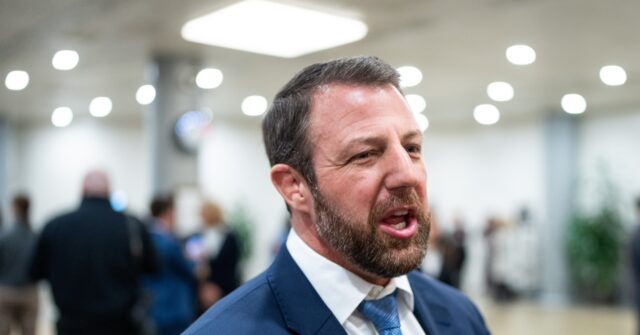In recent political developments, a collaborative effort is underway involving at least one Republican Senator and pro-migration Democrats to draft a border-related bill for 2025. Oklahoma Senator Markwayne Mullin has expressed seriousness about this project, which may potentially replace the fast-track reconciliation bill that is rumored to significantly fund border security and enforcement starting in early 2025. Mullin indicated that President Donald Trump is open to considering a single reconciliation bill focused solely on tax cuts if bipartisan efforts yield a suitable border bill. However, details of this projected legislation remain undisclosed, underscoring the sensitive nature of negotiations.
The bipartisan effort is reportedly being supported by several Democratic Senators identified as pro-migration advocates. Senators Mark Kelly from Arizona, Gary Peters from Michigan, and Richard Blumenthal from Connecticut are working alongside Mullin, with Kelly emphasizing that any new bill must encompass their vision of “immigration reform.” This phrase often suggests an agenda that includes amnesty, an increase in legal migrants, and enhanced federal assistance for migrants. Kelly believes that a willingness from Mullin to work collaboratively on these issues could be beneficial, signaling a potential blending of border security discussions with broader immigration reform.
Simultaneously, there is an ongoing effort by Senate Republicans to implement a reconciliation bill aimed at providing approximately $85 billion for border security measures. This bill, described as fast-tracked due to its budget reconciliation process, would bypass the standard 60-vote requirement to overcome a filibuster. According to Stephen Miller, a prominent figure in the Trump administration’s immigration policy, key Senate leaders are committed to presenting a border funding package for the President’s approval early in 2025. The proposed funding could facilitate a historic increase in resources dedicated to immigration enforcement, including more Immigration and Customs Enforcement (ICE) officers, enhanced border agents, and comprehensive funding across various operational needs.
In stark contrast to the reconciliation bill’s potential restrictions on increasing current legal migration levels, Mullin has historically advocated for stringent border security while simultaneously supporting programs that allow for greater legal migration of foreign workers into the workforce. This dual approach positions Mullin as a complex figure within immigration discussions, where he balances the desire for secure borders with demands from business sectors that favor visa worker programs. These programs are often beneficial to business leaders as they lower labor costs and sidestep hiring American workers, contributing to broader economic implications in local communities.
Political dynamics in Oklahoma also reflect the contentious nature of migration policy. Following a bipartisan proposal for a legal migration framework in the state, there was significant pushback from local voters, leading Governor Kevin Stitt to downplay the initiative. Furthermore, Oklahoma Senator James Lankford’s involvement in a bipartisan border bill devised with input from President Biden’s team drew considerable scrutiny from GOP colleagues. Ultimately, the secretive nature of the bill’s contents resulted in its failure and the framing of such initiatives as detrimental to the Republican narrative during the 2024 campaign cycle.
As the 2024 election approaches, public sentiment on immigration reform appears pivotal, particularly among GOP voters who are wary of a repeat of previous mistakes made during Trump’s 2017 tax bill vote. Two recent polls suggest a strong preference among voters for Congress to prioritize immigration reform prior to any tax cuts. The lesson drawn from past experiences is evident, with GOP voters recalling how immigration legislation became sidelined once a tax bill was passed. This awareness may heighten the urgency for bipartisan cooperation on border security funding and immigration reform, emphasizing that the balancing act of fulfilling constituency demands while navigating party lines remains fundamentally challenging within the current political landscape.

